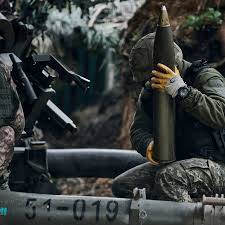Introduction:
The ongoing conflict between Russia and Ukraine has escalated into a full-blown war with severe consequences for both nations and the international community. Understanding the main reason behind this conflict requires an examination of historical, geopolitical, and cultural factors. While there are multiple contributing factors, the primary catalyst for the Russo-Ukrainian war can be traced back to the geopolitical struggle for influence in the region.
Geopolitical Significance:
Ukraine, situated at the crossroads of Eastern Europe and Russia, holds immense geopolitical significance. With its abundant natural resources, strategic location, and historical ties to Russia, Ukraine has long been a coveted region. The country's geopolitical importance stems from its position as a buffer zone between Russia and the West, particularly the European Union and NATO. Consequently, control over Ukraine translates into leverage over regional dynamics, energy security, and military influence.
Historical Background:
Historically, Ukraine has experienced a complex relationship with Russia. Ukraine was part of the Russian Empire for centuries and later became a founding member of the Soviet Union. However, following the dissolution of the Soviet Union in 1991, Ukraine gained independence. This shift in power dynamics, coupled with Ukraine's aspirations to integrate with the West, challenged Russia's influence in the region.
The Orange Revolution of 2004 and the Euromaidan Protests:
The Orange Revolution of 2004 marked a turning point in Ukrainian politics and further strained the Russo-Ukrainian relationship. The protests, triggered by allegations of electoral fraud, called for fair elections and closer integration with the European Union. Russia viewed these events as an attempt to distance Ukraine from its sphere of influence, leading to heightened tensions.
The subsequent Euromaidan protests in 2013-2014 further exacerbated the situation. Mass demonstrations erupted in Kyiv after then-President Viktor Yanukovych rejected an association agreement with the EU, opting for closer ties with Russia instead. The Euromaidan protests ultimately led to Yanukovych's removal from power, fueling Russia's fears of losing control over Ukraine.
Annexation of Crimea and Eastern Ukraine Conflict:
In response to the ousting of Yanukovych, Russia annexed Crimea in 2014, citing the need to protect ethnic Russians and secure its strategic interests in the Black Sea. This move was widely condemned by the international community, as it violated Ukraine's territorial integrity. The conflict further escalated in Eastern Ukraine, where pro-Russian separatist movements emerged, leading to a brutal and protracted war.
Geopolitical Struggle:
The Russo-Ukrainian conflict can be understood as a manifestation of Russia's desire to reassert its dominance in the region and prevent Ukraine from aligning itself with Western powers. The European Union and NATO's efforts to establish closer ties with Ukraine, including discussions of potential membership, have been met with strong opposition from Russia, who perceives such moves as encroachment on its sphere of influence.
Energy Security:
Ukraine's strategic location also plays a significant role in the conflict. As a transit country for Russian natural gas exports to Europe, Ukraine holds sway over European energy security. By asserting control over Ukraine, Russia can manipulate energy flows and leverage its position as a key energy supplier.
Conclusion:
While the Russo-Ukrainian conflict encompasses a multitude of factors, including historical grievances and cultural differences, the central catalyst remains the geopolitical struggle for influence in the region. Russia's determination to maintain its sphere of influence, coupled with Ukraine's aspirations for closer ties with the West, has driven the conflict. Resolving this conflict will require diplomatic efforts, respect for Ukraine's territorial integrity, and a commitment to finding a mutually beneficial solution for all parties involved.




No comments yet
Be the first to share your thoughts!